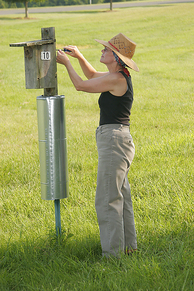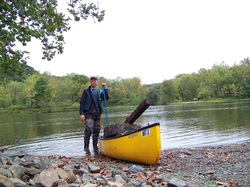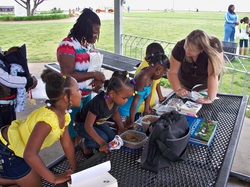Virginia Master Naturalist Service: What You'll Do
Within a year following completion of your basic training course or in a subsequent calendar year, you must complete 40 hours of volunteer service and 8 additional hours of continuing education to become a Certified Virginia Master Naturalist. You can complete your service in four key areas: citizen science, stewardship, education and outreach, and chapter administration. Following your initial certification, you can become recertified every year by completing 40 additional hours of service and participating in 8 hours of continuing education annually.

Citizen Science
Bird, butterfly, frog and toad counts. Wildlife and native plant mapping and surveys. Camera trapping. Stream monitoring. Citizen scientists all over the country follow consistent protocols to collect data that supply scientists and policy-makers with the information they need to make informed management and policy decisions. These data describe the lives, habits, and responsiveness to change of plant and animal species or communities.
Bird, butterfly, frog and toad counts. Wildlife and native plant mapping and surveys. Camera trapping. Stream monitoring. Citizen scientists all over the country follow consistent protocols to collect data that supply scientists and policy-makers with the information they need to make informed management and policy decisions. These data describe the lives, habits, and responsiveness to change of plant and animal species or communities.

Stewardship
Plant trees. Protect streams. Construct concrete balls for placing in nearby rivers to allow oysters to grow from seeds to adulthood. Restore and maintain wildlife habitat, improving water quality. Build park trails and maintain them. Stewardship brings volunteers outside, gets them dirty, and shows them tangible results of their work.
Plant trees. Protect streams. Construct concrete balls for placing in nearby rivers to allow oysters to grow from seeds to adulthood. Restore and maintain wildlife habitat, improving water quality. Build park trails and maintain them. Stewardship brings volunteers outside, gets them dirty, and shows them tangible results of their work.

Environmental Education
People who enjoy teaching, public speaking, or working with youth may do education-related service projects, such as leading programs in a nearby state park.
People who enjoy teaching, public speaking, or working with youth may do education-related service projects, such as leading programs in a nearby state park.
